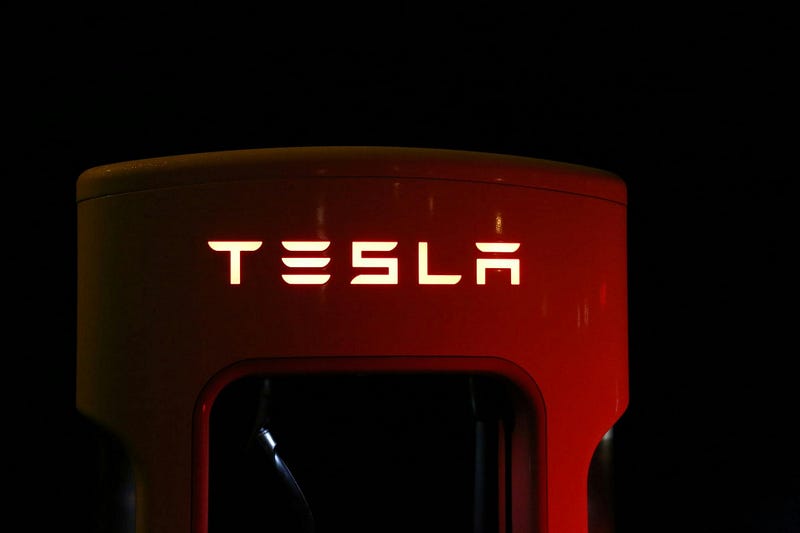Tesla’s Evolution: Analyzing Strengths and Challenges
Written on
Chapter 1: Tesla's Impact on Automotive and Energy Sectors
Tesla, Inc. has revolutionized the automotive and energy landscapes through its groundbreaking developments in electric vehicles (EVs) and renewable energy solutions. Established in 2003 and spearheaded by the visionary Elon Musk since 2004, Tesla has gained acclaim for its commitment to innovation and sustainability.
This piece will delve into the strengths and challenges faced by Tesla during Musk’s tenure, offering a thorough understanding of its formidable presence in the market alongside the obstacles it encounters.
Understanding the Advantages and Challenges of Tesla
Evaluating a company's strengths and weaknesses provides crucial insights into its market standing and potential future direction. The strengths indicate where the company thrives, while the weaknesses highlight vulnerabilities that may impede growth. For Tesla, recognizing these elements is essential to grasping the entirety of its operations and strategic direction.
Tesla's Strengths
#### Innovation and Technological Advancement
Tesla distinguishes itself through relentless innovation, particularly in the realm of EV technology. The company has been at the forefront of creating high-performance electric vehicles, with offerings such as the Model S, Model 3, Model X, and Model Y, all featuring impressive ranges, swift acceleration, and state-of-the-art design.
The firm’s advancements in battery technology and energy efficiency have solidified its status as a leader in the EV sector. Furthermore, Tesla’s developments in autopilot and self-driving technologies signify substantial progress in autonomous driving capabilities, providing the company with a competitive edge that has spurred consumer interest and investment.
#### Brand Recognition and Market Leadership
The strength of Tesla’s brand is one of its most valuable assets. With strong brand recognition and a dedicated customer base, Tesla’s image is often likened to that of high-end car manufacturers. This brand equity is bolstered by the company’s dedication to exceptional performance, innovative technology, and sustainability.
As the undisputed leader in global EV sales, Tesla has effectively capitalized on its first-mover advantage, capturing a significant market share and maintaining a leading position in sales volume and brand influence. This dominant market stance grants Tesla a strategic edge over both established automakers pivoting to EVs and emerging startups.
#### Commitment to Sustainability
Central to Tesla’s business philosophy is its mission to expedite the global shift toward sustainable energy. The company’s dedication to sustainability is reflected in its diverse product range, which includes electric vehicles as well as solar energy products and energy storage solutions.
Tesla’s vehicles play a crucial role in significantly reducing carbon emissions, aligning with worldwide initiatives to combat climate change. Products like the Powerwall and Solar Roof extend Tesla’s influence beyond automotive applications, fostering the adoption of renewable energy in both residential and commercial sectors. This environmental focus resonates with eco-conscious consumers and investors, enhancing Tesla’s market appeal.
#### Financial Growth and Performance
Tesla has exhibited robust financial performance, characterized by consistent revenue growth and increasing profitability. The company's remarkable market capitalization, often exceeding that of traditional automakers, underscores investor confidence in its long-term potential.
Milestones such as consecutive profitable quarters and inclusion in the S&P 500 have cemented Tesla’s status in financial markets.
Tesla's Challenges
#### Production and Supply Chain Issues
One significant challenge for Tesla lies in its production and supply chain management. The company has frequently faced delays and bottlenecks, particularly during the ramp-up phases for new models like the Model 3 and Model Y. Such issues can result in missed delivery targets and customer dissatisfaction.
Additionally, Tesla's dependence on a complex global supply chain introduces risks; disruptions in the supply of essential components, such as batteries and semiconductors, can greatly affect production timelines and cost structures. Navigating these supply chain challenges remains an ongoing hurdle.
#### Quality Control Concerns
Tesla has encountered scrutiny regarding quality control, with reports detailing inconsistent build quality and reliability issues. Customers have voiced concerns over fit and finish, paint quality, and other manufacturing defects. Notable recalls, such as those related to potential suspension problems and touchscreen failures, have further amplified these concerns.
Despite efforts to enhance quality control, these issues may tarnish the brand’s reputation and lead to increased warranty costs and regulatory challenges.
#### Intensifying Market Competition
The EV landscape is becoming increasingly competitive, with traditional manufacturers and new entrants launching their own electric models. Companies like Ford, General Motors, and Volkswagen are heavily investing in EV technology, while new players such as Rivian and Lucid Motors are gaining traction.
This rising competition places pressure on Tesla to sustain its technological advantages and market share. The company must continue to innovate and enhance its production capabilities to maintain its lead in the sector.
#### Leadership and Public Perception
Elon Musk's leadership serves as both a strength and a potential weakness for Tesla. While his visionary approach has propelled the company forward, his controversial remarks and actions can adversely affect public perception and stock value. Musk’s engagement with social media, particularly Twitter, has led to regulatory scrutiny and legal challenges, contributing to volatility in Tesla’s stock performance.
It is crucial for Tesla to balance Musk’s innovative leadership with more structured corporate governance to uphold investor confidence and ensure long-term stability.
Conclusion
Tesla’s journey under Elon Musk's guidance showcases remarkable strengths alongside significant challenges. The company’s commitment to innovation, brand loyalty, focus on sustainability, and impressive financial performance have positioned it as a leader in the EV and renewable energy sectors. However, obstacles related to production, quality control, competitive pressures, and leadership controversies must be addressed to maintain its growth and market dominance.
